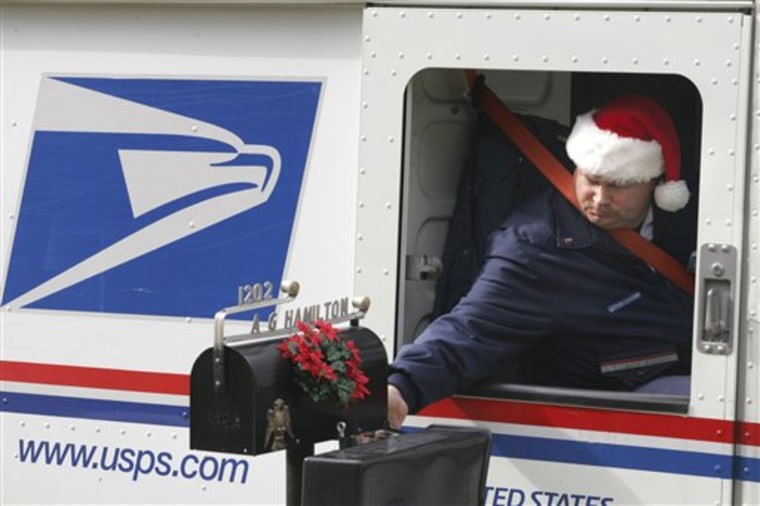This holiday season, a leaner budget might clarify which people truly make a difference in your life. The challenge will be figuring out how much to tip them.
Determining what to give during the holidays, if anything, will likely be more complicated than in years past. Even if money is tight, it's hard not to feel guilty about skimping on the usual year-end bonus. You might also worry that not tipping will create an awkward tension, or result in shoddier service.
Still, you won't be alone if you scale back. About a quarter of respondents to a recent Consumer Reports survey plan to tip less this holiday season than they did last year. Only 6 percent plan to give more. If you're among those on a tighter budget, here's how you can save without appearing cheap.
Know the customs
Before you start doling out money, you might be curious about what others are giving.
There are no hard-and-fast rules, but year-end tips are generally the cost of a single session. So if a haircut costs $40, that's how much you could give as a tip.
And holiday bonuses are generally reserved for people you've relied on for at least six months, said Mary Mitchell, author of "The Complete Idiot's Guide to Business Etiquette." So don't feel obligated to tip a hairdresser you've only been to a few times.
For someone like a paperboy who doesn't charge per delivery, ask others what they're giving if you're at a total loss. Practices usually vary by region, however, so don't use your sister in Wyoming to gauge what you should pay in New York City. You also shouldn't feel pressured to keep up with others.
Remember that some workers have guidelines on what they can accept. Mail carriers, for example, can only take non-cash gifts valued at $20 or less. That could include a gift card, but not personal checks in any amount. Alcohol isn't allowed either, even if it's worth less than $20.
Teachers generally can't accept cash either. The rules vary, however, so be sure to check with the school. There could also be guidelines on tipping other employees, such as bus drivers and teacher's aides.
Focus on key people
One way to save is to focus on those you feel must be tipped.
Last holiday season, for instance, the downturn didn't affect how much housekeepers and teachers got. But fewer people tipped their barbers, garbage collectors, mail carriers and manicurists, according to Consumer Reports.
"The dollar amounts aren't changing so much as who is getting tipped," said Donato Vaccaro, who helps conduct the magazine's annual holiday tipping survey.
Since the economy hasn't improved, Vaccaro said more people will likely trim their lists this year.
If the strategy sits well with you, start by identifying those you feel absolutely should get tips. They'll likely be people you have frequent or intimate contact with, such as child or pet care providers.
You might also want to consider financial situations when drawing up your list. A yoga instructor might not need, or expect, a tip as much as a manicurist. Another reason you might leave someone off the list: you already tip them generously throughout the year.
Consider non-cash gifts
If cash tips aren't in the budgetary stars, you can still give small gifts that don't cost a lot.
Baked goods, jams and candles are the perennial crowd pleasers. But use your knowledge about the person to be creative. For instance, someone who recently took up knitting might appreciate a subscription to a knitting magazine. Or if you know someone who wants to start a side business, you could offer to teach them how to set up a Web page.
Another option is pooling resources to buy a nice gift. For example, tenants in an apartment building could team up to buy an iPod for the super. It shouldn't be hard to find people willing to participate, with so many looking to save right now.
If you feel you can't afford a tip or gift, thank you notes can still make a difference. You could even spruce it up with a Godiva chocolate; one box should be enough for all your envelopes.
Of course, you might feel sheepish about giving a card that doesn't have any cash inside. But at the very least, a warm message can help ease any awkwardness that might come from avoiding the issue altogether.
If you still can't shake your guilt, consider lightly touching on your economic situation in the note. Business etiquette author Mitchell suggests thanking the person for bearing with you during these tough times.
You don't need to be explicit about why there isn't any cash included. Everyone knows times are tough; they might be scaling back on their own holiday giving too.
